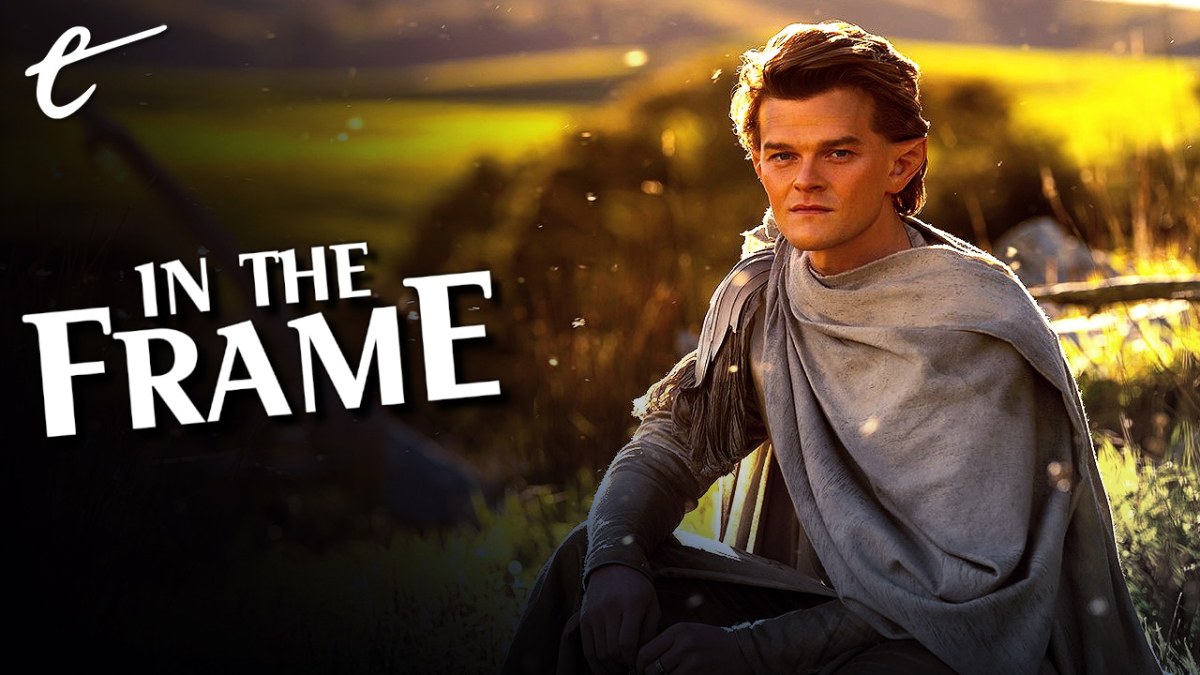The past week has offered audiences their first glimpse at Amazon’s upcoming Lord of the Rings series, titled The Lord of the Rings: The Rings of Power.
Amazon has a lot riding on The Rings of Power. The mere existence of the show invites comparisons to Peter Jackson’s groundbreaking Lord of the Rings trilogy, a touchstone for Millennial audiences. Even more than The Wheel of Time, The Rings of Power is a transparent attempt by the streamer to produce “the next Game of Thrones.” Initial estimates suggested a $1 billion budget for six seasons, but more recent estimates suggest the first season alone cost $465 million.
As such, the streaming service was probably hoping for a universally positive reception to the first publicity material to hit the internet. The title was revealed towards the end of January. First-look images were released last week. The first trailer was broadcast during the Super Bowl, turning the release of footage into an event in itself. As with any new adaptation of a work with a devoted fandom, the online response has been something of a cacophony.
Some of this is the reactionary backlash accompanying any modern project with female characters or characters of color, and showrunners Patrick McKay and J.D. Payne are candid about how little they care for such complaints. Some of this reflects a conservatism in the fandom, with anger reported at the hiring of an intimacy coordinator. Other complaints concern the art of adaptation, especially changes made to the source material’s chronology. Some people just don’t like the title.

The release of all this publicity material in a concentrated period brought all of these complaints bubbling back to the surface, especially for anybody who uses social media. Of course, it’s worth stressing that the internet is not real life. If it were, Snakes on a Plane would have been a blockbuster success and nobody would have gone to see Avatar. There’s a tendency to assume that the volume and intensity of online discourse translates to the real world in a way that isn’t true.
It seems likely that most people who saw the title The Lord of the Rings: The Rings of Power, or saw the screenshots last week, or happened upon the trailer during the Super Bowl just thought that it was cool that Amazon is making a Lord of the Rings television series, and they then continued about their business. There’s a tendency to overinflate the importance of fans to the success of projects like this, at the expense of the more relaxed mainstream audience.
Of course, fans of J.R.R. Tolkien have historically been a very traditionalist and conservative group. This makes a certain amount of sense, given that The Lord of the Rings is a story that is (at least in part) about trying to conjure the memory of a lost and idealized past. Peter Jackson’s trilogy might be beloved by mainstream audiences, but it faced an uphill battle trying to appeal to a hardcore fandom that seemed almost resentful of the novels being adapted at all.
“People are going to look at it now, and they’re going to think we share something in common,” said Ted Tschopp, co-founder of TolkienOnline.com, in December 2001. “If the movie fails, I’ll have a sense of relief. It’s selfish, I know, but I’ll have a snobbish attitude of, ‘Thank goodness, I can still enjoy my books.’” On the release of The Fellowship of the Ring, some fans groused at Jackson’s decision to bulk up the roles of female characters, and others complained Jackson was “raping the text.”

The more things change, the more they stay the same. After all, much of the modern fan media complex can trace its roots back to the heady days of the turn of the millennium, and a lot of the seeds of the modern discourse were sown with the releases of the Star Wars prequels and the Lord of the Rings trilogy. The only thing that has really changed is the volume and intensity of the online complaining, which seems to be operating on a hair trigger.
The extreme reactions to the preview material for The Rings of Power are the rule rather than the exception. These days, online commentators don’t need to actually watch media to generate an opinion on it. The Batman won’t be out for another few weeks, but there are already complaints that it is too long or too dark from people who have yet to actually watch the movie. These days, it seems hopelessly old-fashioned to actually bother to watch something before complaining about it.
There are several factors at play here. The most cynical is the supply side. There is an entire online economy running on manufactured outrage, tying into broader cultural forces. Stirring up online hatred and outrage sight unseen is a great way to generate clicks that can both raise advertising revenue and be directed to some greater ideological end. It’s really just a new coat of paint on Bob Dole complaining about the corrupting power of Trainspotting, not having seen Trainspotting.
However, there’s also the fact that so much of modern pop culture is approached with near-religious reverence. There is a reason that fans obsess over “the canon.” These movies and television shows are not just movies and television shows; they are monuments erected in honor of these larger intellectual properties. In this climate, promotional materials are treated with a level of scrutiny afforded a sacred text, with fans often going frame by frame through trailers.

Every little nugget of information is judged in a vacuum, measured against the audience’s idealized or imagined version of what the end product should be. This is no longer three blind people describing an elephant; this is thousands of angry blind people loudly complaining that the elephant doesn’t look like it did in the source material. Of course, it’s hard to blame fans for this. They have been conditioned to look at modern media in this light.
After all, this sort of promotional material has become an event in itself. There are now teasers for trailers, turning trailers into eagerly anticipated multimedia releases. Fans speculate about when trailers for hotly anticipated projects will release, and studios play along. Stephen Colbert hosted a virtual chat before the launch of the trailer for Dune. In December 2020, half the internet seemed to watch the three-and-a-half-hour Disney Investors Day.
In some ways, this is the logical conclusion of the modern era of “content soup,” where popular franchises are distilled into shapeless packages of consumable content. Studios no longer sell an individual experience, like a film or a show. Instead, they package entire universes and franchises. The expectation is that a given show or movie is not an entity of itself, but an aperitif for the next thing. It’s post-credit scenes, surprise cameos teasing future projects, the inevitable sequel hook.
With all that in mind, in a world where every movie or television show is itself a trailer for the next movie or television show, why shouldn’t audiences subject promotional images and advertisements to such intense scrutiny and react so strongly towards them? How long can fans be expected to reserve judgment on something like The Rings of Power, a show forecast to run six seasons? The first episode seems entirely reasonable, but it’s easy to understand why some feel even that is too much.

To be fair, there are reasons to be wary of The Rings of Power that have nothing to do with the extent to which the promotional images look like the cover to a 1990s album. So much of what made the original theatrical trilogy so compelling was Jackson’s creative vision and autonomy. With that in mind, there is perhaps some cause for concern that Amazon reportedly moved the show’s second season to the United Kingdom (in part) so executives could more closely “monitor” the production.
Even then, it seems a little early to expend so much energy worrying about a series that has already wrapped production on its season and is months away from release. After all, publicity campaigns can be deceptive — often intentionally. Directors and creatives don’t often cut their own trailers, and those who do are often limited in the material that they can use. There are plenty of projects with disastrous pre-publicity that arrived to a surprisingly enthusiastic response.
Rise of the Planet of the Apes is an obvious example: a modern day prequel to Planet of the Apes starring James Franco from the director of an obscure British prison break movie and with a lackluster trailer? How could that be good? It doesn’t really matter, because it was great. The flip side is also true — a good promotional campaign doesn’t always correlate to a good movie. Just ask Warner Bros. about what happened when it recut Suicide Squad to more closely resemble its popular trailer.
Maybe The Lord of the Rings: The Rings of Power will be good. Maybe it will be bad. Maybe it will be just “fine.” It’s probably best to wait until people have actually seen the show to make a conclusive determination.






Published: Feb 18, 2022 11:00 am